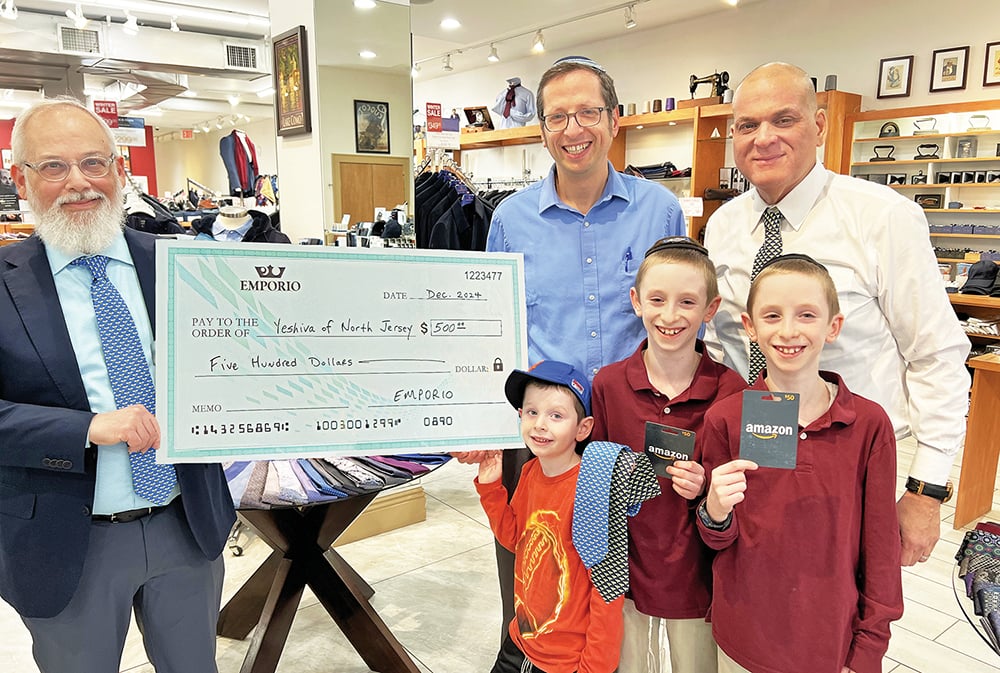To the Editor:
In an article published here on March 13, “Modern Orthodoxy’s Identity Crisis”, Amram Altzman laments that, unfortunately, not enough change is taking place in the Modern Orthodox world. Times are changing and so should we and our approach to Orthodox Judaism. This is especially regrettable in that which, he claims, is taking place at Yeshiva University, “the hallmark institution of Torah u-Mada, Torah and [secular] knowledge.” Mr. Altzman would like to see movement on the issues of partnership minyanim, women wearing tefillin, and full inclusion of an LGBTQ agenda into our communities. Presumably, since these are the issues of the day, it is precisely in these areas that we could prove our commitment to modernity. The modern world wants it and we should oblige. There should be more “embracing modernity”, and there is not enough “constructive dialogue about the changing society in which we live”.
Altzman begins with a fundamental error and this mistake colors the remainder of his piece. “As [the] modern world changes, our Orthodoxy must change, too.” For him, engagement with the world means changing with the times. The author misunderstands Modern Orthodoxy to mean that one automatically adopts all modern ideas as his own, and fits his Judaism to these ever-changing notions.
Although he did not like the term Modern Orthodox, the greatest leader in this philosophy of engaging the world through Torah was Rabbi Joseph B. Soloveitchik. More than 20 years after his passing, his thought and teachings continue to animate Yeshiva University. It was his deeply held belief that the Torah is always relevant in every generation and in every circumstance. It certainly would never change and its message must never be manipulated to fit comfortably with passing trends. Halachic Judaism, Rabbi Soloveitchik taught, must be understood and appreciated as a sophisticated system of thought in its own right, never to be measured by other criteria. When judging a thought or a value through the prism of Torah, the result will sometimes be acceptance, sometimes synthesis, and sometimes rejection, but never capitulation. Rabbi Soloveitchik taught that the best in modern culture could sometimes be integrated into the religious personality. But halacha is sacrosanct.
The Roshei Yeshiva at Yeshiva University do not shut themselves off from the world at all. Quite the opposite is true. They are constantly dealing with questions and problems coming from all over the world. They do so with understanding, empathy and a love of klal Yisrael. Quite naturally, it is to them that individuals and communities turn with difficult halachic problems for guidance and solutions. To whom else would we bring our questions? To those whose knowledge of, and commitment to, halacha is mediocre? A serious approach to halacha requires one to seek answers from those much more knowledgeable, and never to have predetermined answers to which the posek must conform.
Mr. Altzman is correct when he says that modernity has “evolving values,” but he is wrong in his claim that Orthodox Judaism should evolve along with them. The unchanging value system of the Torah is what we bring with us to meet the modern world. We will be challenged for maintaining sacred teachings, but our responsibility is to safeguard the tradition, and to do so with pride and conviction.
Yeshiva University is living up to its mission to produce Jewish leaders. It is doing the hard work of training them to go out into a world veering further and further away from traditional values. Unquestioned and absolute commitment to Torah and a willingness to engage with modern culture can be tricky, but YU has always been, and continues to be, the world’s leader in this difficult task. Our rabbis, and even our lay leaders, would be a disappointment if they saw their role as adopting every modern idea of the moment, and becoming apologists for the Torah. The rabbis we produce must articulate timeless values in a society where right and wrong is as fleeting as the news cycle. If every modern idea would become their own we will have failed. We are filled with pride that more than two hundred young men have recently been recognized at the Chag haSmicha for taking upon themselves the daunting task of being leaders of our people, ready to accept the challenge of being a spokesman for Torah Judaism.
For those who choose not to grapple with the challenges of modernity, the issues are far less complicated. But we encourage our students to be out in the world and to face the realities. It is not always easy but our charge is to bring the Torah’s message to a world in desperate need of it. We learn how to do this by our Roshei Yeshiva who are fully engaged and always available.
To be a Modern Orthodox Jew does not mean to accept all modern ideas. It means to learn about them, evaluate them, and decide whether they have a place in the life of a Jew whose every move is governed by the Torah. And if one is not able to make a determination, one must have a teacher upon whom to rely. We would all do well to be guided by the words of Rabbi Soloveitchik in “Halachic Man”: “When halachic man approaches reality, he comes with his Torah, given to him from Sinai, in hand. He orients himself to the world by means of fixed statutes and firm principles. An entire corpus of precepts and laws guides him along the path leading to existence…”
Neal Turk
Yeshiva University













